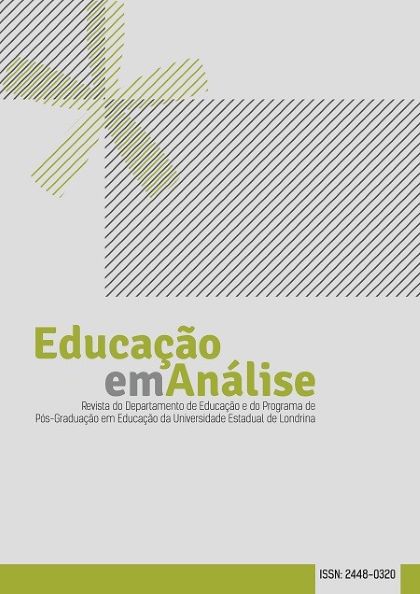Teaching for 2 and 3-year-old children in historical-critical perspective
DOI:
https://doi.org/10.5433/1984-7939.2018v3n1p93Keywords:
Childhood education, Teaching, Historical-critical pedagogy. Historical-cultural theory, Child development.Abstract
The studies of Historical-Critical Pedagogy approach teaching as the guiding principle of Early Childhood Education, to promote integral development – from the perspective of Historical-Cultural Theory – and guarantee the educational rights of the young child. This study discusses the possibilities of accomplishing this priority in relation to the educational reality. The research was guided by the following problem: how can pedagogical practice with 2 and 3-year-old children can overcome the predominant tendency of basic care and the application of punctual and non-systematized activities to an effective teaching practice that favors the integral development of the child? The course of this work consisted, initially, of carrying out a theoretical study on teaching in Early Childhood Education and converting its results into theoretical contents for a course of formation for teachers working in CMEIs in Foz do Iguaçu. The offer of this course was a methodological option to produce research data, through which we tried to observe how the concepts and the guidelines would be understood and assimilated in practice by the teachers. The analysis consisted in verifying how the participants assimilated the contents, converted them into reflection to direct their plans and applied the planned practices, as well as analyzing the potentialities and difficulties of the pedagogical work with 2 to 3-year-old children, which encompass the conception of child development adopted and the difficulties in organizing the teaching, pointing to the need to rethink the teacher training for this educational stage.Downloads
References
ARCE, Alessandra. O referencial curricular nacional para a educação infantil e o espontaneísmo: (re)colocando o ensino como eixo norteador do trabalho pedagógico com crianças de 4 a 6 anos. In: ARCE, Alessandra; MARTINS, Lígia Márcia (Org.). Quem tem medo de ensinar na educação infantil? Em defesa do ato de ensinar. 2. ed. Campinas: Alínea, 2010. p. 13-36.
GIARDINETTO, José Roberto Boettger; MARIANI, Janeti Marmontel. O lúdico no ensino da matemática na perspectiva vigotskiana do desenvolvimento infantil. In: ARCE, Alessandra; MARTINS, Lígia Márcia (Org.). Quem tem medo de ensinar na educação infantil? Em defesa do ato de ensinar. 2. ed. Campinas: Alínea, 2010. p. 185-218.
HAI, Alessandra Arce. Como pensar e organizar o trabalho pedagógico na educação infantil? Contribuição da teoria histórico-cultural. In: PAGNONCELLI, Cláudia; MALANCHEN, Julia; MATOS, Neide da Silveira Duarte de (Org.). O trabalho pedagógico nas disciplinas escolares: contribuições a partir dos fundamentos da pedagogia históricocrítica. Campinas: Armazém do Ipê, 2016. p. 95-109.
VALDEZ, Diane; COSTA, Patrícia L. Ouvir e viver histórias na educação infantil: um direito das crianças. In: ARCE, Alessandra; MARTINS, Lígia Márcia (Org.). Quem tem medo de ensinar na educação infantil? Em defesa do ato de ensinar. 2. ed. Campinas: Alínea, 2010. p. 163-184.
Downloads
Published
How to Cite
Issue
Section
License
The journal reserves the right to make normative, orthographic and grammatical changes in the originals, with the aim of maintaining the cultured standard of the language and the credibility of the vehicle. It will, however, respect the authors' writing style. Alterations, corrections, or suggestions of a conceptual nature will be sent to the authors when necessary. In these cases, the articles, after being adequate, should be submitted to a new appreciation.









